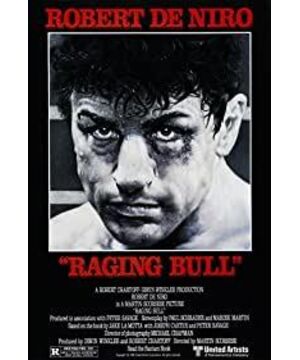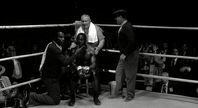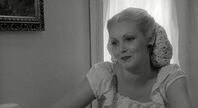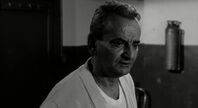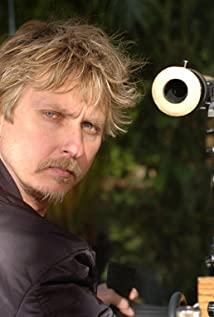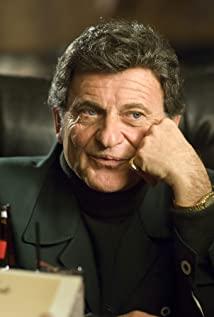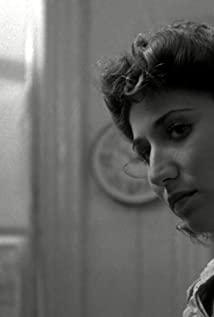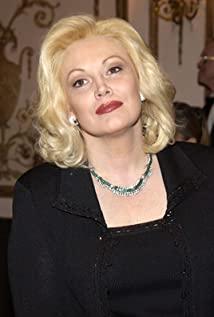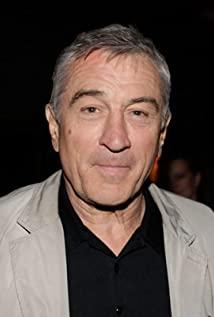Raging Bull is another masterpiece by Martin Scorsese after Taxi Driver, which perfectly interprets the status quo of American society in the 1940s and brings its unique black thinking. At the time of filming, Martin was at a low point in his career and life. It was an autobiography that De Niro strongly recommended to him. Scorsese, who read the original book on the hospital bed, felt that La Motta was very similar to his own life experience, and immediately decided to continue the filming. It was at the time of Stallone's Rocky Fire, and the film party also hoped to make a boxing movie. This will be rated as the best movie of the 1980s. This is how it was born. and won six Oscar nominations and two wins. De Niro's superb performance in the film adds 27 kilograms to the character, and vividly interprets La Motta's unruly anger and confusion in his eyes. Let him become a hall-level actor in one fell swoop, and he won the Oscar for best actor perfectly.
The whole film can be roughly divided into three sections: destruction, self-destruction, and redemption, which are divided by the demarcation points before obtaining the throne of boxing champion, after obtaining the throne, and after being released from prison. The sense of hierarchy is very clear. As a biopic, Raging Bull uses a lot of footage to portray LaMotta's family and character. Boxing is just a clue that runs through the whole book. The boxing scene in the movie does not take up much space. There are only eight boxing matches, which together take only ten minutes. Martin Scorsese's handling of this is excellent, and his grasp of this kind of biopic is very good. All of the boxing scenes are concise and clear, and each boxing match is directly marked by the era. Immediately after the boxing match, it turns to the portrayal of LaMotta's character.
In portraying LaMotta, Scorsese focused on the roughness and simplicity he found, losing what he actually won and then taking out all his resentment and resentment on his first wife. The two quarreled, and La Motta flipped the table. In addition to the quarrel between the two, the whole scene was joined by the noise of the road outside, which made it feel very messy but very real. The cross-cutting method is also used here; from the quarrel between the husband and wife to Joey on the side of the road, and then from Joey's entrance to the quarrel, the series between the characters is very coherent.
LaMotta's simplicity manifests itself in his first date with Vicky, without much dialogue, mostly body language, when he pretends to put a hand behind Vicky's back during a drive, but involuntarily. Stopped, the two of them played the ball. The ball disappeared after a hit, and after a long time of bombing, I couldn't find it. I brought Vicky home and opened the refrigerator and asked her if she wanted something to eat. Vicky said no, so close the door and sit face to-face with her. During the whole process, LaMotta seemed very simple and not good at words, so the whole dating process also seemed embarrassing and embarrassing. He took Vicky into his bedroom. The two of them sat on the bed. LaMotta put his hand behind Vicky's back, but Vicky suddenly stood up to look at the photo in the closet. There is a detail in this shot. When LaMotta and Vicky are awkwardly kissing, LaMotta and his brother Joey can be seen through the gap between them, suggesting that his relationship with his brother will be broken because of this woman.
In the following passages from 1944 to 1947, a montage of rapid transitions was used, with a large number of passages of family life. Then, in order to get a match against the boxing champion, he promised the Mafia to lose a match on purpose, and he went back to the backstage crying. He is such a simple person.
He began to show his self-destructive part. He was overeating. Domestic violence was serious. He loved this woman to death. She made him stingy, full of jealousy, full of suspicion. He didn't want to lose her. He took all his anger and jealousy out on the ring. In the end, it became more and more serious and she even suspected that her brother had an affair with her. In one of Vicky's angry words, LaMotta rushed to his brother's house and beat him up, and the relationship between the brothers broke down completely. Vicky also began to go back to the room to pack up. The body movements explained everything without using too many words.
After 56 years, LaMotta quit boxing, bought a nightclub, and began to retire, but was imprisoned for letting a 14-year-old girl work in a bar, and selling the gems on the boxer's belt for bail. That's where LaMotta's road to redemption begins. He hammered the wall in prison and cried, and they all called me a beast, but I wasn't that bad. All this is caused by his character, and character determines everything. After being released from prison, he attempted to reunite with his younger brother by working low-level bar talk shows.At the end, LaMotta, who saw through all this, faced himself in the mirror and said the classic lines in the pier situation. This is his road to redemption.
The film ends with an excerpt from the Bible. All I know is that I was blind, and now I see again. People are really alive, not walking dead. The difference between compromise and reconciliation is whether there is that kind of anger, that kind of vitality. A paradox of unease and fearlessness, indifference and fanaticism. An angry bull will always be an angry bull.
View more about Raging Bull reviews


